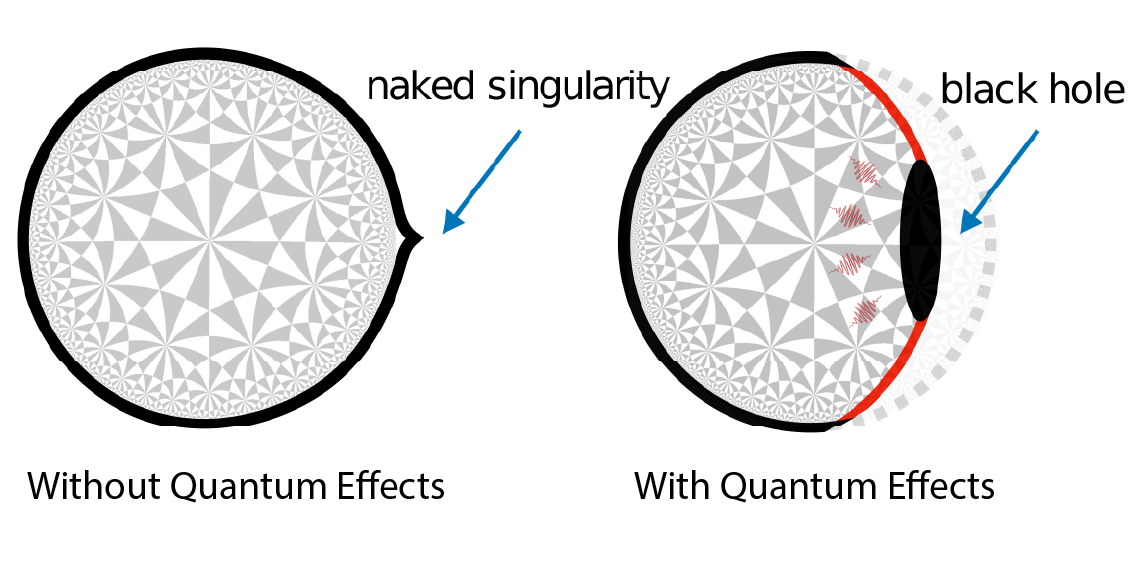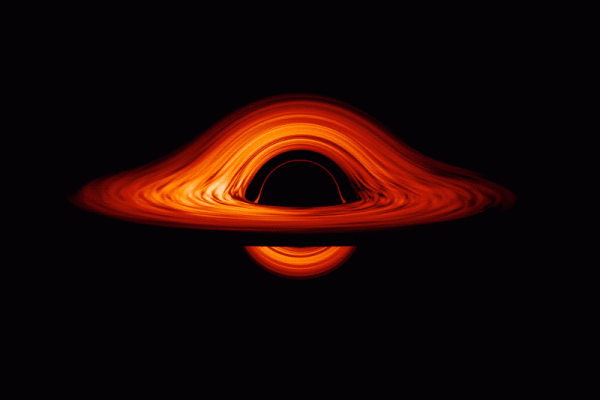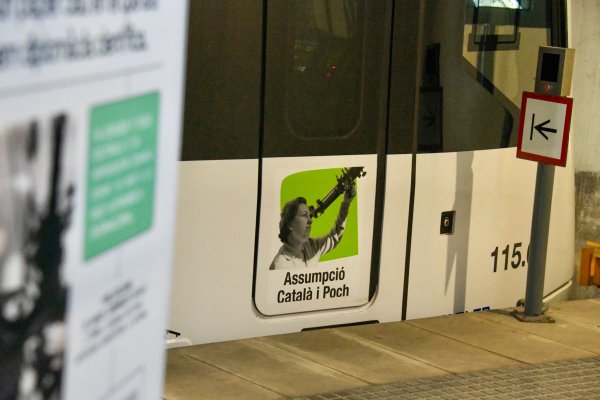A team of researchers have made significant advances in our understanding of quantum black holes and their properties. The study, which counts with the participation of ICCUB scientists Antonia Frassino and Robie Hennigar, has been published in the journal Physical Review Letters.
The team has found strong evidence for a new mathematical inequality that applies to black holes when quantum effects are taken into account, called the quantum Penrose inequality. In simple terms, this rule is related to an important idea in physics known as the cosmic censorship conjecture, which suggests that singularities (points of infinite density where the laws of physics break down) are always hidden inside black holes and cannot be exposed or “naked”. If singularities were naked, it would mean we couldn’t use science to make future predictions, which would be very problematic.

“While there have been some attempts to update this rule to include the effects of quantum mechanics, our work is the most robust and the first to apply it in three dimensions,” says Robie Hennigar, researcher at ICCUB and one of the authors of the article.
The paper also presents strong evidence for a limit to how much entropy (which measures the disorder or randomness) a black hole can have when quantum effects are considered. This new rule, called the quantum Reverse Isoperimetric Inequality, generalizes a classical rule about black hole entropy to include the effects of quantum matter and is crucial for understanding the thermodynamic properties of black holes.
“Blending gravitation with quantum mechanics has been the holy grail of high energy theoretical physics for many decades. We are now extending well-understood concepts and results in classical gravity to incorporate quantum effects, providing a stepping stone for the new developments in the field,” says Antonia Frassino, also ICCUB researcher and co-author of the work.
Robie Hennigar added, “we hope that our quantum Penrose inequality will be an important ingredient in formulating a rigorous notion of a new quantum cosmic censorship conjecture”.
Antonia Frassino and Robie Hennigar, both researchers at ICCUB, played key roles in formulating these inequalities and testing them using advanced theoretical models. Their work not only advances our understanding of black holes but also supports the broader quest to unify general relativity and quantum mechanics.
The study was conducted in collaboration with researchers Juan Pedraza, former ICCUB researcher now at the Instituto de Física Teórica UAM/CSIC and Andrew Svesko, from the Department of Mathematics at King’s College London. The work was supported by various grants and funding bodies, including the Spanish Ministry of Science and Innovation and the European Union’s Horizon 2020 program.
Reference:
Frassino, A. M., Hennigar, R. A., Pedraza, J. F., & Svesko, A. (2024). Quantum Inequalities for Quantum Black Holes. Phys. Rev. Lett., 133, 181501. doi:10.1103/PhysRevLett.133.181501



